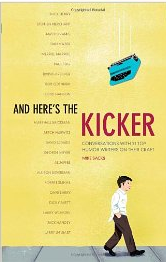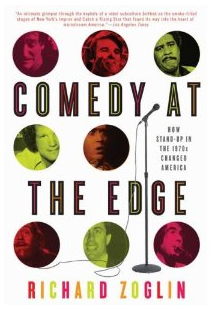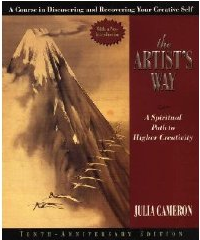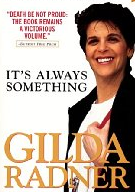 I recently finished a great comedy book, “And Here’s The Kicker: Conversations with 21 Top Humor Writers On Their Craft” by Mike Sacks. I got a ton of useful quotes from it, so this is part two in a rather long series of posts. I recommend buying the whole book, as there is a lot of insight inside. Since the book is interview style based, I’ve put the writer’s name above all of the quotes that are attributed to him.
I recently finished a great comedy book, “And Here’s The Kicker: Conversations with 21 Top Humor Writers On Their Craft” by Mike Sacks. I got a ton of useful quotes from it, so this is part two in a rather long series of posts. I recommend buying the whole book, as there is a lot of insight inside. Since the book is interview style based, I’ve put the writer’s name above all of the quotes that are attributed to him.
DAN MAZER
“Most of the comedy writers I know are complete disasters socially. You put them in a room together, and it’s just a car crash. It’s horrible.” (56)
“They have the same type of childhood. Not necessarily unhappy childhoods so much as lonely ones.” (56)
“My mum would have been proud if I were a serial killer. She would’ve boasted that I’d murdered thirteen prostitutes and left no forensic evidence.” (57)
“I still don’t go out much. But I do think it’s vital to leave the house and meet people and explore life, to get inspiration for your work. The scourge of comedy is when it eats itself – when comedy writers watch sitcoms and think, Oh, you know, such and such a show is great. Let’s do something a bit similar to that. I think that’s wrong, really. I think the idea is to live life and take inspiration from that experience, as opposed to just getting inspiration from other artists and their work.” (57)
“At the end of my second year, I told my parents, “Look I’m not going to be a lawyer. I’m going to try and make a career in comedy.” I think my parents just ignored it and pretended it wasn’t happening, because it was just too traumatic for them. They already pictured me in a barrister’s wig and had probably already told their friends I was a lawyer.” (59)
“You find little bits here and there, and you toil away, and you do things you think are funny, and you make a nice living, and people might talk about something you wrote. But occasionally you might find a nugget. You just find this thing that is completely different and special, and you have a moment when you just know. At that point, you have to trust that instinct and really go with it.” (61)
“I think we hold a mirror up to people. We don’t edit things to make people look more stupid or ignorant. A lot of people come out of the Ali G interviews looking great.” (61)
“It’s one thing to do something funny, and that’s great, and all you can do as a comedy writer is to write funny things and hope that people find them. But the idea that so many people found this character and he became such a phenomenon is incredible to me.” (63)
“It was a genuine pop-culture phenomenon. And I think if you try to go out and create something like that, it won’t happen; it was just a weird confluence of events.” (63)
“Americans are generally more polite. That is, up until the point when they snap. And then when they snap, they snap instantly and fiercely. There’s just this moment, and then the switch flicks, and that’s it.” (64)
“That’s half the process: finding the right people to interview.” (65)
“I think some performers have one or two of those things. Some have brains. Some are funny. And some are daring. But Sacha has all three. And that’s a unique combination.” (68)
“We probably have a file of scripts and jokes that extends to about three thousand pages. We write so much material for each three-minute segment. And Sacha is brilliant at keeping it all sort of filed together in his head. He’s able to access any joke instantly and brilliantly. There are jokes from years ago that Sacha will be able to call on.” (69)
“Sacha goes to extremes with each character. If he’s playing Borat, he won’t shower the night or two before an interview. It’s an amazing devotion to detail. Even Borat’s underwear is authentic for the character. It has a Russian label on it, so that if Borat strips and somebody catches him, his underwear won’t say “Wal-Mart.” (69)
“There are two things I would say are the key to comedy. One is character. All good comedy comes from character. In my mind, jokes are one thing, but without a convincing protagonist and somebody you care about, your comedy is on a path to nowhere… Number two is to have a voice. Have an opinion. Try and say something. I don’t think it’s enough to just write trifling jokes. You should have a point of view. Have the confidence in what you think. Don’t let the executives or your own self-doubt dilute what you want to say.” (70)
MERRILL MARKOE
“If I know there is something I am supposed to be doing or saying or wearing, I feel compelled to resist – particularly with creative endeavors, like writing. If I see an obvious punch line or plotline driving toward me, I can’t help but make a sharp left turn into the unexpected. I don’t like to replicate what I’ve seen done before – I don’t like to give people what they expect. I think it’s my job to come up with a surprising angle or to add some personal twist.” (74)
“One immediate task – when we were determining how to construct a daily format – was to create segments that could be repeated.” (76)
“I had Dave’s voice all analyzed and figured out, because not only did I live with him, but I was preoccupied with creating a show that would please him. Nowadays we call that sort of thing “co-dependence.” But in those days I simply called it “being head writer.” (82)
“A friend of mine calls TV writing the “golden handcuffs.” You get hooked on the idea of making big money as a reasonable and worthy trade-off for lack of artistic control. So you stop worrying about whether you are meeting your own needs for self-expression and just focus on the size of your bank account.” (83)
“Real human beings don’t behave in big broad strokes. They behave with tiny, exacting, site-specific details. Your stupid McDonald’s employee should be different than mine.” (85)
“You need to find a way to get enough distance from yourself to effectively edit and rewrite your own work. And I do a lot of editing and rewriting. A lot.” (86)
“Don’t be overly attached to every syllable and detail of your work. Your commitment is to making the whole thing work. So you have to allow yourself to throw out sections you may love if they block the flow or seem unnecessary. Tell yourself you can save them and use them elsewhere later. Even if you never do, lie to yourself if it makes it easier.” (86)
“Take a moment to imagine how you will feel when your work is published. Anything that you think will make you uncomfortable or ill at ease… get rid of it.” (86)
“You have to allow your first draft to be really bad. Just throw a lot of things out there and get it on paper. The hardest part of the process is just getting a first full draft. The fun part, if any of it can be considered fun, is when you start to improve the piece through the editing and rewriting. That is definitely where the art is: knowing what to save, what to throw out, what to embellish.” (86)
“In the end, nothing works except sitting down to write. And then, even sadder, actually writing. “ (87)
“Robert Benchley explains, “Anyone can do any amount of work, provided it isn’t the work he is supposed to be doing at that moment.” (87)
PAUL FEIG
“Tragedy is when something bad happens to you; comedy is when something bad happens to somebody else.” (89)
“That’s the great thing about humor. You can take those experiences, and if you recount them in a funny way, and if they’re truthful and real, they will always become funnier.” (91)
“Real life experiences are rife with bad decision-making. And bad decision making is, in a lot of ways, the key to comedy.” (91)
“Movies are mostly about spectacle and huge stories… On the other hand, TV is about assembling a group of friends that you visit and hang out with every week.” (94)
“I’ve seen more comics storm off the stage and yell at people, slam their mics down, and do weirder things than you could ever imagine. There’s a real insecurity that comes with being funny. You’re on a razor’s edge. Comedy is an attempt to control things, and it just so happens that you’re trying to control people through laughter. But laughter can go off the rails at any given point.” (94)
“That’s not to say that Hollywood doesn’t care about quality but that they only want the quality when it’s going to bring in money. Nobody in Hollywood wants to do something that they’re proud of but that nobody is going to see.” (97)
“You need the show to be grounded. When it’s grounded – when the characters are living, breathing, real people – then you, as a writer, can do practically anything with them.” (98)
“The cruel side of me likes creating situations where people get buried deeper and deeper.” (100)
“You want characters to respond as they would in real life. They’re saying things quickly without thinking about them. But when you write, you can take months to finish a script. So everything the characters say has been so well thought out that it becomes almost perfect. But that’s just fake.” (100)
“You can get away with a lot by having just a simple expression.” (101)
“That’s what I liked about the show ending so suddenly: loose ends are never tied up in real life.” (101)
“If there’s any magic, it only exists to create a chemistry within a group of talented people – actors, writers, directors, producers – who are willing to work together and allow each of the others to do their best work. I personally don’t think that’s a hard mix to create again. It’s not always going to work, but I think it could work if enough talented people with a vision are willing to make it work.” (102-103)
“At the end of the day, none of us is that different. Freaks, geeks, jocks, whoever. The events we experience as human beings are fairly similar. The circumstances are different, and the surroundings and the social strata are different. But, you know, insecurity is insecurity. And loneliness is loneliness. And the basic human circumstances are all the same. If you’re telling honest stories that are done in a special way, magic can definitely be duplicated.” (103)




